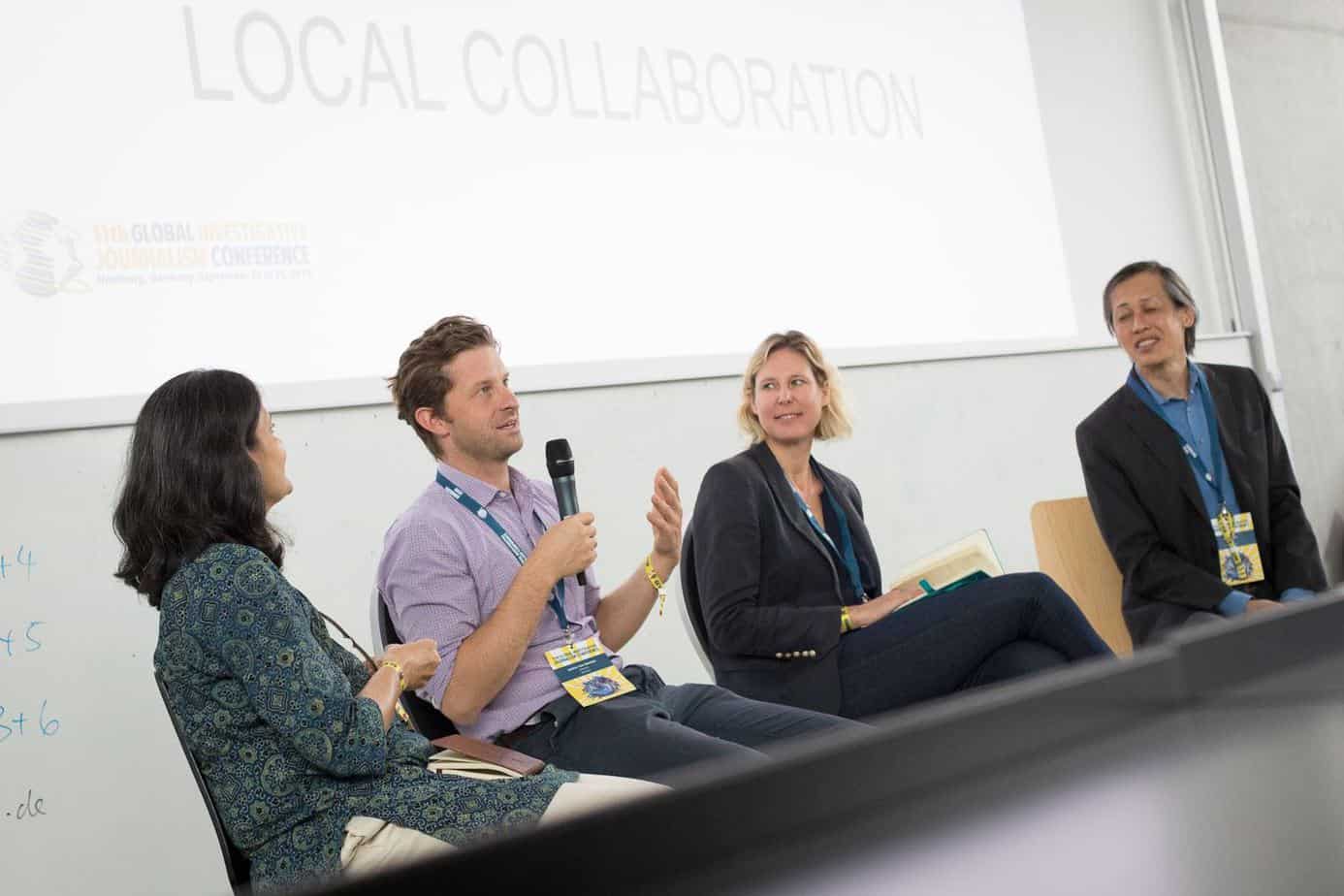The Global Investigative Journalism conference brings together some of the best journalists in the world, with discussions and workshops on the latest investigative techniques, data analysis, cross-border collaboration, and more! The conference is organised every other year by the Global Investigative Journalism Network, that Citizen Matters is a part of.
The 2019 conference was held late September in Hamburg, Germany, where I was part of a panel on Collaborative Networks for Local Journalism, moderated by Reg Chua from Reuters; my fellow panelists were Rachel Oldroyd from Bureau Local (part of The Bureau of Investigative Journalism) and Justus von Daniels from Correctiv.Lokal. The Bureau Local is a collaborative, investigative network in the UK. Their members include regional and national news outlets, local reporters, hyperlocal bloggers, technologists, community-minded citizens and specialist contributors. Correctiv Local is a German network for local journalists to work together on investigations.
Rachel pointed out that, as newsrooms shrink, she sees collaboration as “a way to keep accountability, public interest journalism at a local level alive.” Unfortunately in India, rarely do newsrooms collaborate. The traditional competition of being the first to break news is not that relevant anymore. There are more stories to break than there are journalists anyways (though not enough money to support all those). Collaboration can really make a difference in unearthing critical stories – it also reduces the pressure on, and targeting of, individual newsrooms.
At the city level, things are even more challenging – traditionally there has been little deep-diving local journalism in India. There is always more attention (and budgets) for national and state-focused coverage in mainstream media. There is also a lack of, or poor quality of local data.
The key learning I shared was Citizen Matters’ hybrid model where we work with professional journalists (both staff and freelance), experts, practitioners and citizen reporters; and for specific projects, the effort is true partnership.
When we collaborate on stories, we have clear guidelines to ensure independence and fairness. We have done award-winning
One of my favourite examples is the investigative series we did, unearthing the Rs 2300-crore project on Bellandur wetlands, full of violations. Citizens had filed RTI to get the project details, they also had the old village maps for understanding the issue in detail. IISc’s studies on traffic and drain encroachments added evidence. We researched and reported the violations in the project, as well as the process. We did not sit together and collaborate on the journalism itself; rather each group brought in their unique skillsets and knowledge, that we put together. It was of course left to the citizens to fight the project in court.
This is another story that a citizen writer and our editor collaborated on and developed together: Emissions, tree loss, heat island effect: What the govt did not address before clearing the Elevated Corridors project
Collaborating with citizens is as challenging as any other part of journalism. They are often hard pressed for time (understandably), getting busy with their day jobs, family and other commitments. At times they will have personal agendas or conflicts of interest. It is only solid editorial stewardship that can balance all that, and extract the essence – the facts, the context and perspective – to make stories so much more richer.

